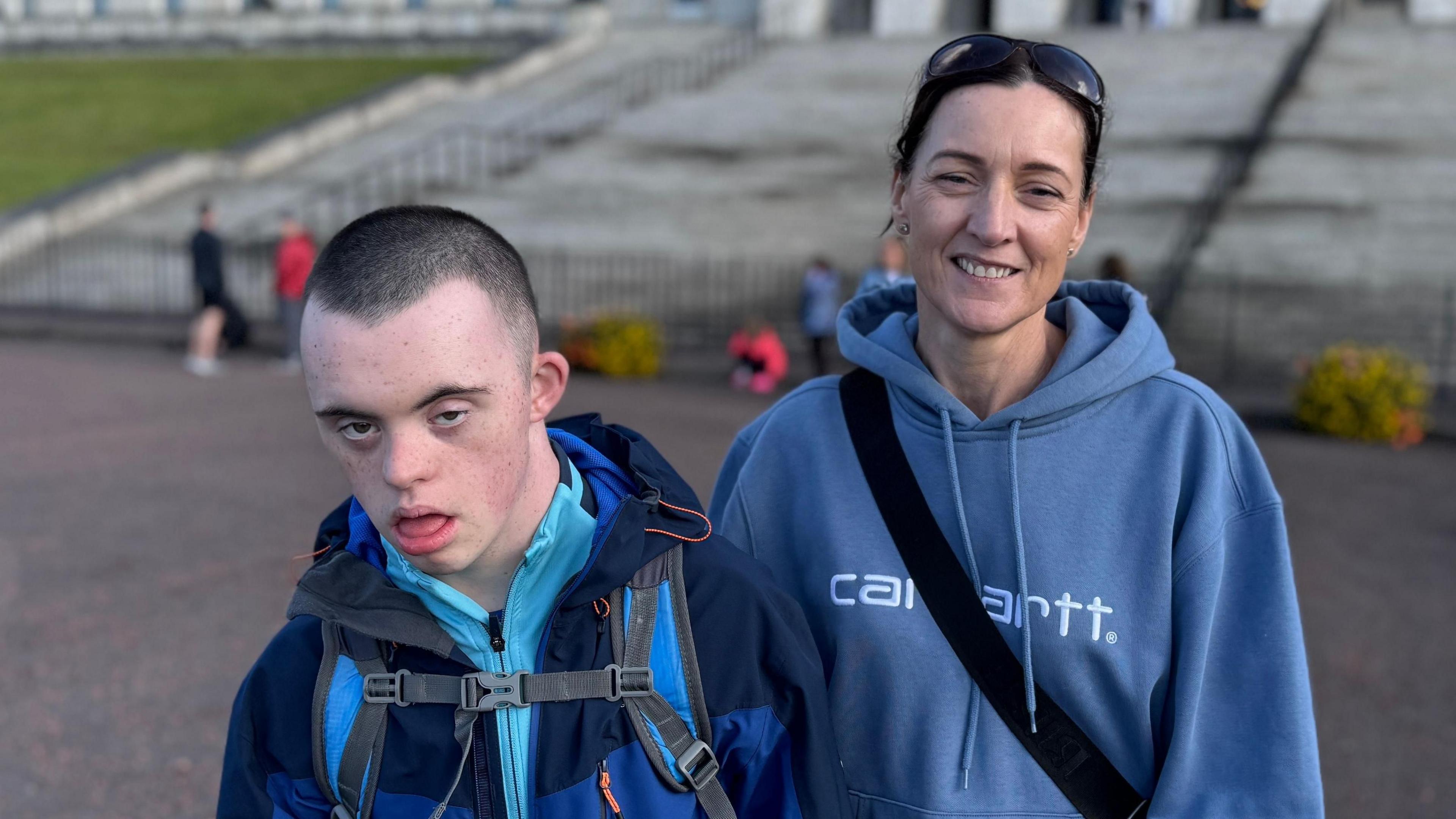Parents of SEN children at 'end of their tether', MLAs told
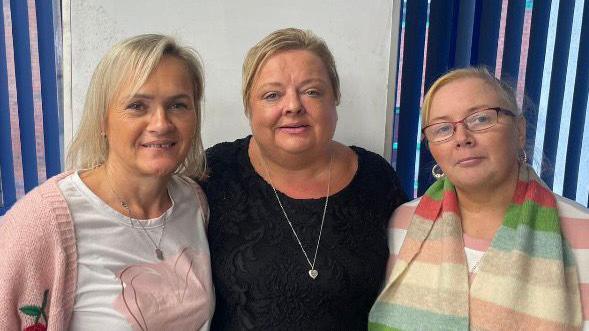
Suzanne O'Hara (l), Linda Harvey (m) and Annette Park (r) are all mothers of autistic children
- Published
Parents of autistic children are "at the end of their tether," MLAs have been told.
That is according to Linda Harvey from Shine Autism Support Group in Belfast.
"They've [parents] fought and fought and fought and they just give up," she said.
Ms Harvey also said that parents were "fighting the system from day one".
Assembly members on Stormont's education committee are holding an enquiry into the delivery of services and support to children with Special Educational Needs (SEN). Ms Harvey, and other parents of autistic children, told MLAs about their experiences.
Around one in 20 schoolchildren in Northern Ireland has a diagnosis of autism, according to figures published by the Department of Health (DoH).
Shine Autism Support Group has been running in Belfast for over a decade and provides support to families of more than 100 autistic children.
Ms Harvey said that "some of our children are waiting five years for a diagnosis".
"I myself have never met a child with autism that did not require some extra support in school," she said.
"It feels like you're constantly fighting the system from day one."
'August is the worst month'
Suzanne O'Hara spoke about her own autistic son, Anthony, who is non-verbal and has learning disabilities.
She said that Anthony's special school summer scheme had been cut from two weeks down to four days in 2025.
"August is the worst month," she said. "In August there's completely nothing."
Annette Park told MLAs that Shine had been her "lifeline".
The Education Authority (EA) has created specialist provision classes in mainstream schools for children with SEN to try to address the shortage of school places for children.
But Ms Harvey said that there were not enough places in special schools for children who needed them.
"There's so many children now in mainstream who shouldn't be in mainstream, should be in special, so there isn't enough places in special," she said.
The EA has recently said there is a need for 6,000 more places in special schools across Northern Ireland.
Ms Harvey said that some of the special provision in mainstream (SPiM) classes for autistic children were not suitable for them.
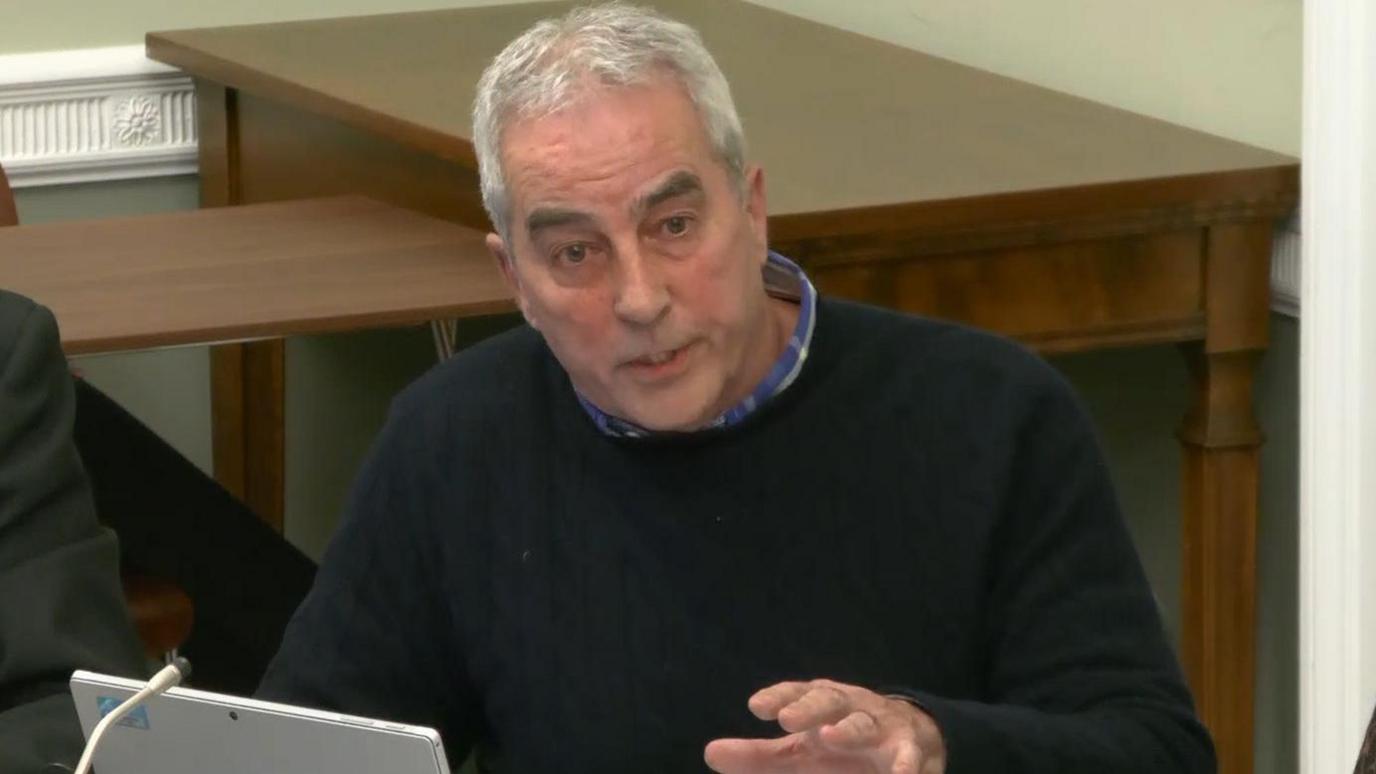
Sinn Féin MLA Pat Sheehan said the EA SEN delivery service is "not delivering for the people and the families who are relying on it"
In response, the Sinn Féin MLA Pat Sheehan said that "the EA SEN delivery service aren't delivering for the people and the families who are relying on it".
"We've a seven year old who's a school refuser... and that's because he's being placed in the wrong setting so I think that has to be addressed immediately," Ms Harvey later told the DUP MLA David Brooks.
In response to a question from the UUP MLA Jon Burrows, Ms Harvey also said some autistic children were spending 90 minutes being transported to school.
"Some of them are getting picked up at eight o'clock and they're not going to their class to nine thirty," she said.
"So that's an hour and a half of that child anxiety rising through the roof, just being left on a bus."
When asked about the impact on families by SDLP MLA Cara Hunter, Ms Harvey said Shine's parent support meeting used "about eight boxes of tissues every single week".
"Because parents are just at the end of their tether - they've fought and fought and fought and they just give up."
"And that obviously passes down through to the child as well."
She said that parents needed clear and accurate guidance, communication and advice.
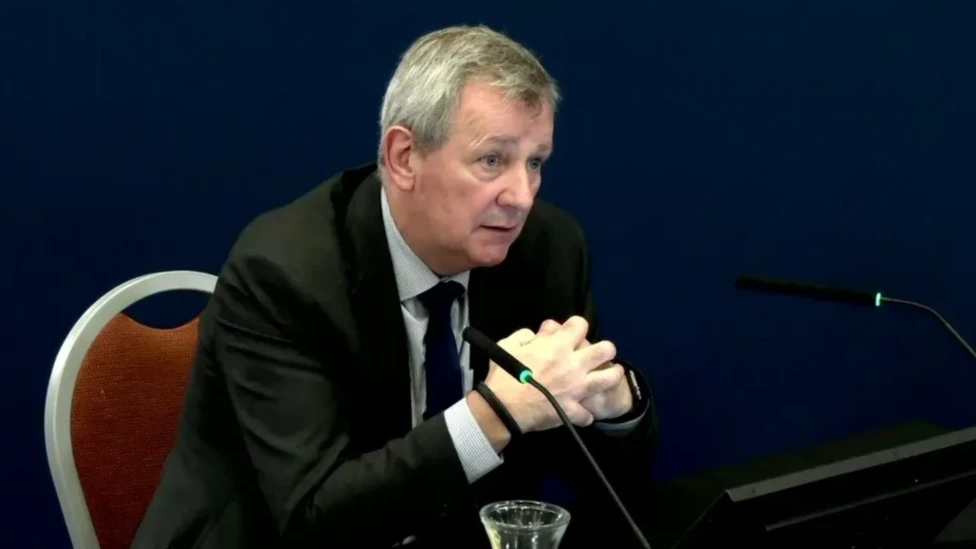
Richard Pengelly is the head of the Education Authority (EA)
Later, the head of the EA, Richard Pengelly, told MLAs that the authority had already started work on providing school places for children with SEN in September 2026.
Mr Pengelly said that the EA started the process of finding school places for children with SEN early in the school year, and had met hundreds of mainstream schools and special schools.
He said that for 2025, "we created in total just 1300 additional places across 120 schools".
But he admitted that some children had not been able to start school in September as their classrooms had not been completed.
He said the teaching unions were working with the EA to tackle the problems.
"Our shared ambition here is to better meet the needs of this vulnerable group of children," Mr Pengelly said.
"At times we have a frustration that the core problem here is seen only as some sort of operational failure by EA.
"I don't believe that's the case but equally I'm not going to sit here and say we're getting it right every time and we're perfect."
Though Mr Pengelly warned that the EA was "£300m short of what I need to run the service as it sits today".
"That's before I even contemplate any expansion or further investment," he added.
He also said that more than 62,000 school-age children had been identified as having a special educational need.
'Dire lack of support'
But Sheehan criticised "the dire lack of support" that organisations like Shine had received from the EA.
He also said that in one west Belfast school a taxi was being used to deliver meals to children with SEN from the school canteen to their classroom.
"The EA canteen service isn't prepared to wheel the meals for those children 50 or 70 years to where the children's classrooms are," Sheehan said.
"Is that value for money?"
Mr Pengelly asked Sheehan to provide him with the exact details of the situation.
The EA's Dale Hanna later said that the authority spent around £30m a year on taxis for around 4,600 children.
- Published28 August
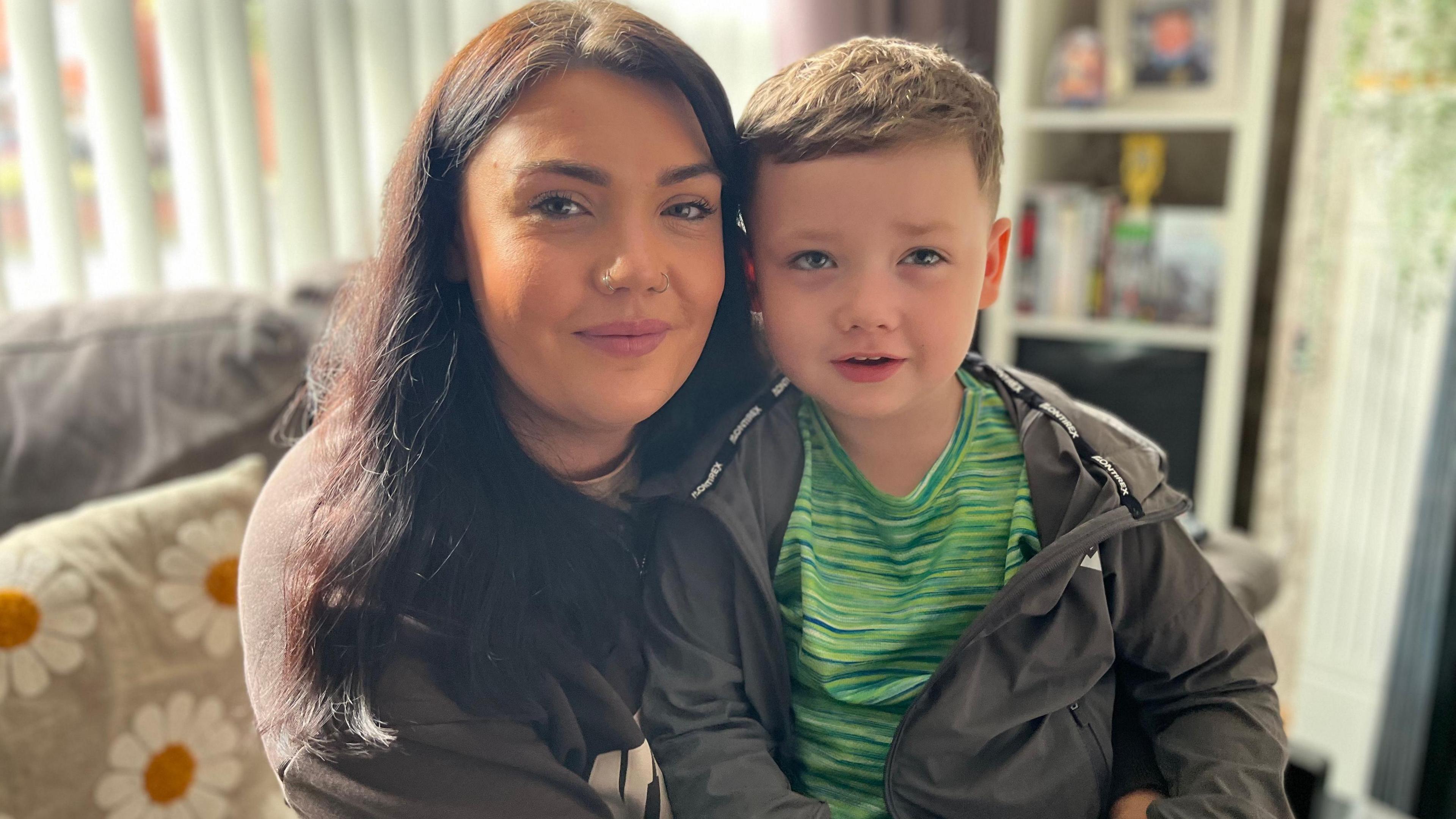
- Published24 September

- Published26 June
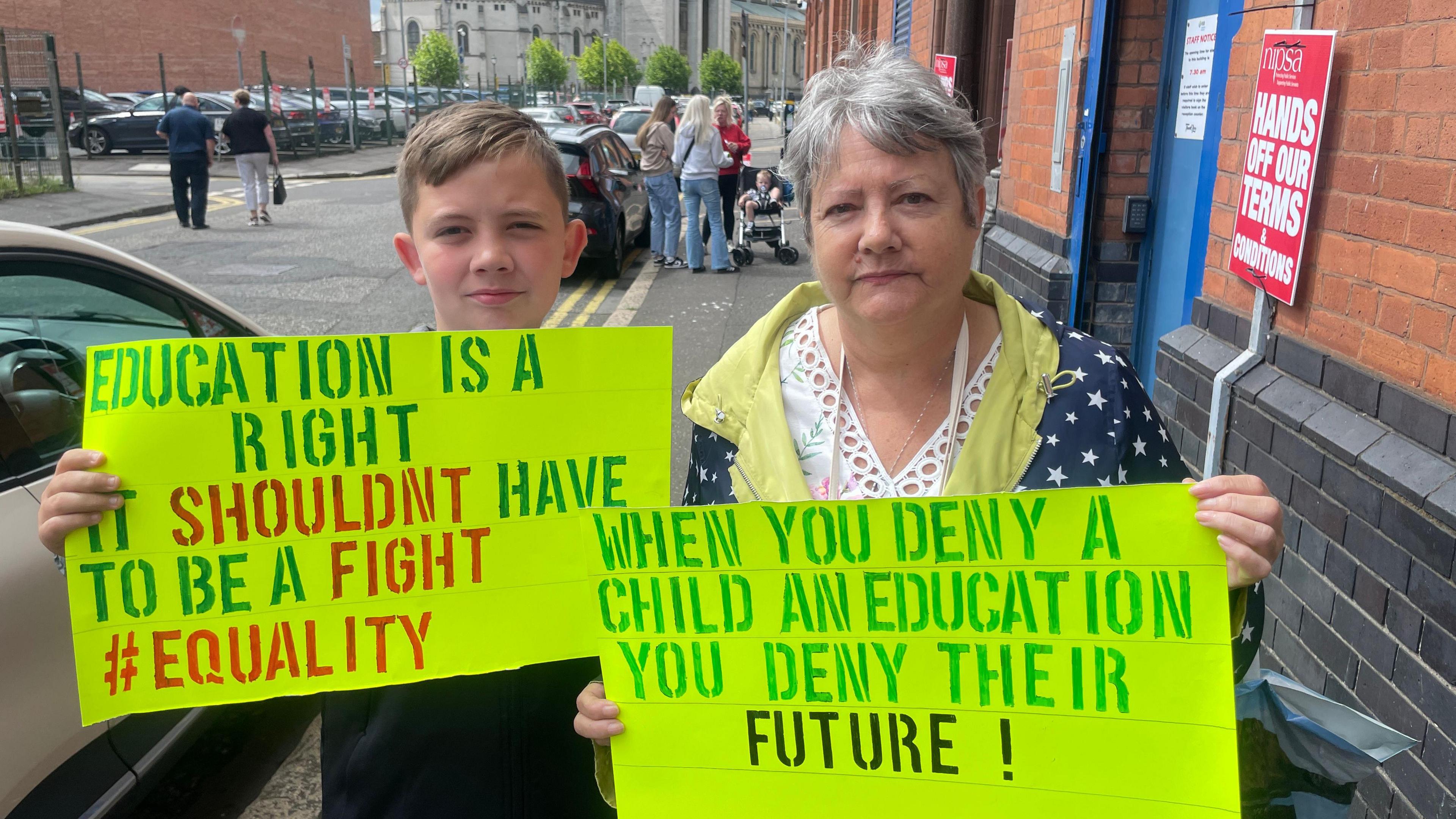
- Published8 September
